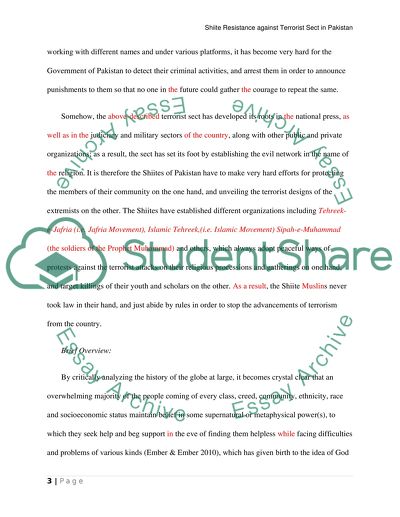Cite this document
(“The Shiite Resistance against the Pro-Taliban Sunni-deoband Terrorists Research Paper”, n.d.)
Retrieved from https://studentshare.org/religion-and-theology/1402360-contemporary-religious-movement
Retrieved from https://studentshare.org/religion-and-theology/1402360-contemporary-religious-movement
(The Shiite Resistance Against the Pro-Taliban Sunni-Deoband Terrorists Research Paper)
https://studentshare.org/religion-and-theology/1402360-contemporary-religious-movement.
https://studentshare.org/religion-and-theology/1402360-contemporary-religious-movement.
“The Shiite Resistance Against the Pro-Taliban Sunni-Deoband Terrorists Research Paper”, n.d. https://studentshare.org/religion-and-theology/1402360-contemporary-religious-movement.


